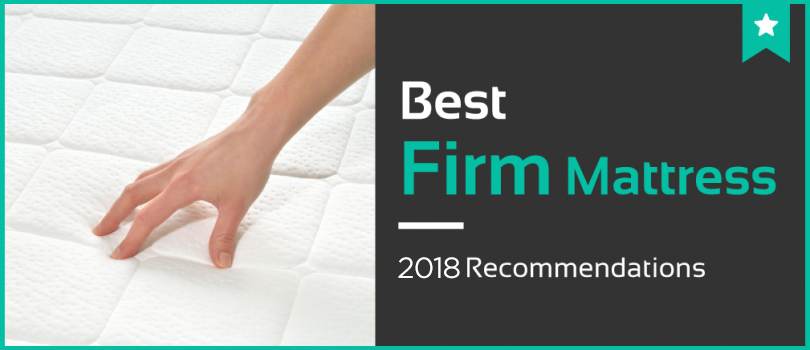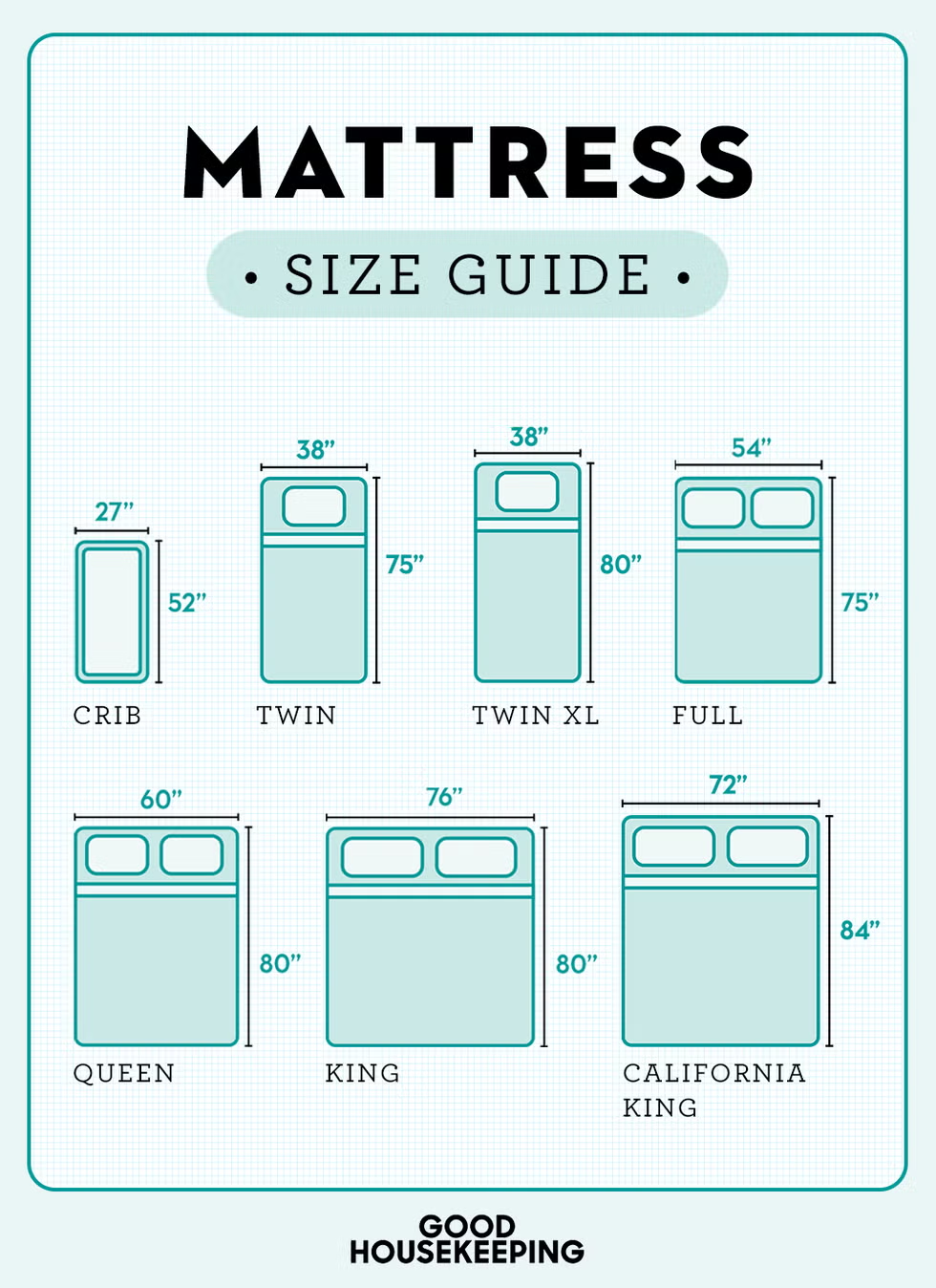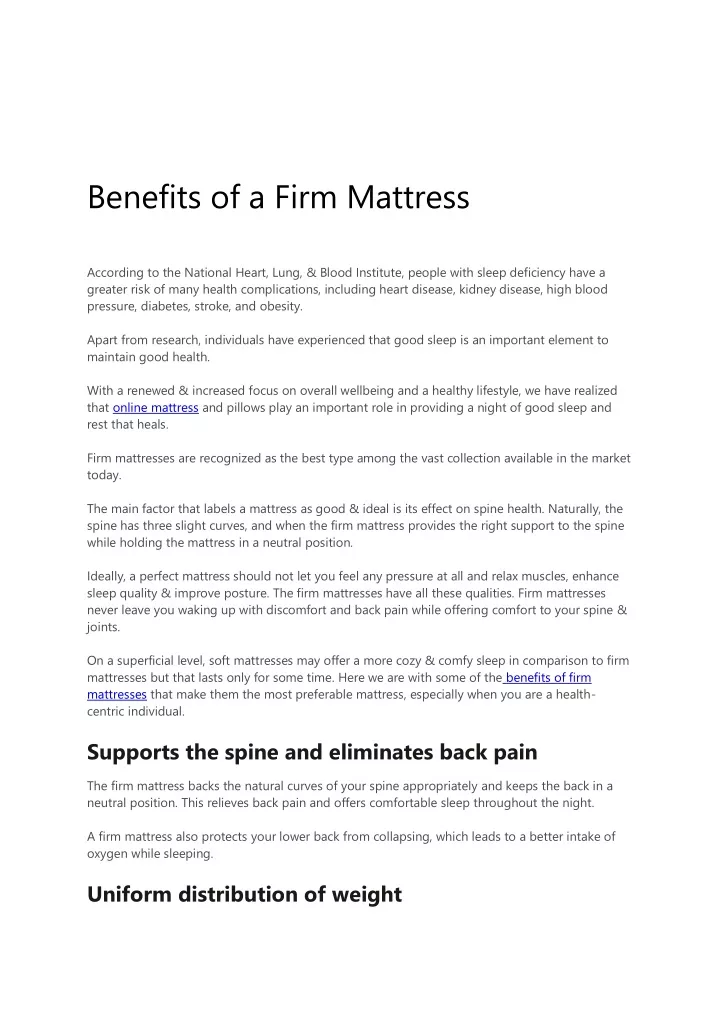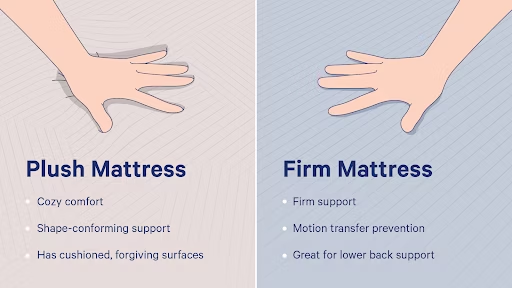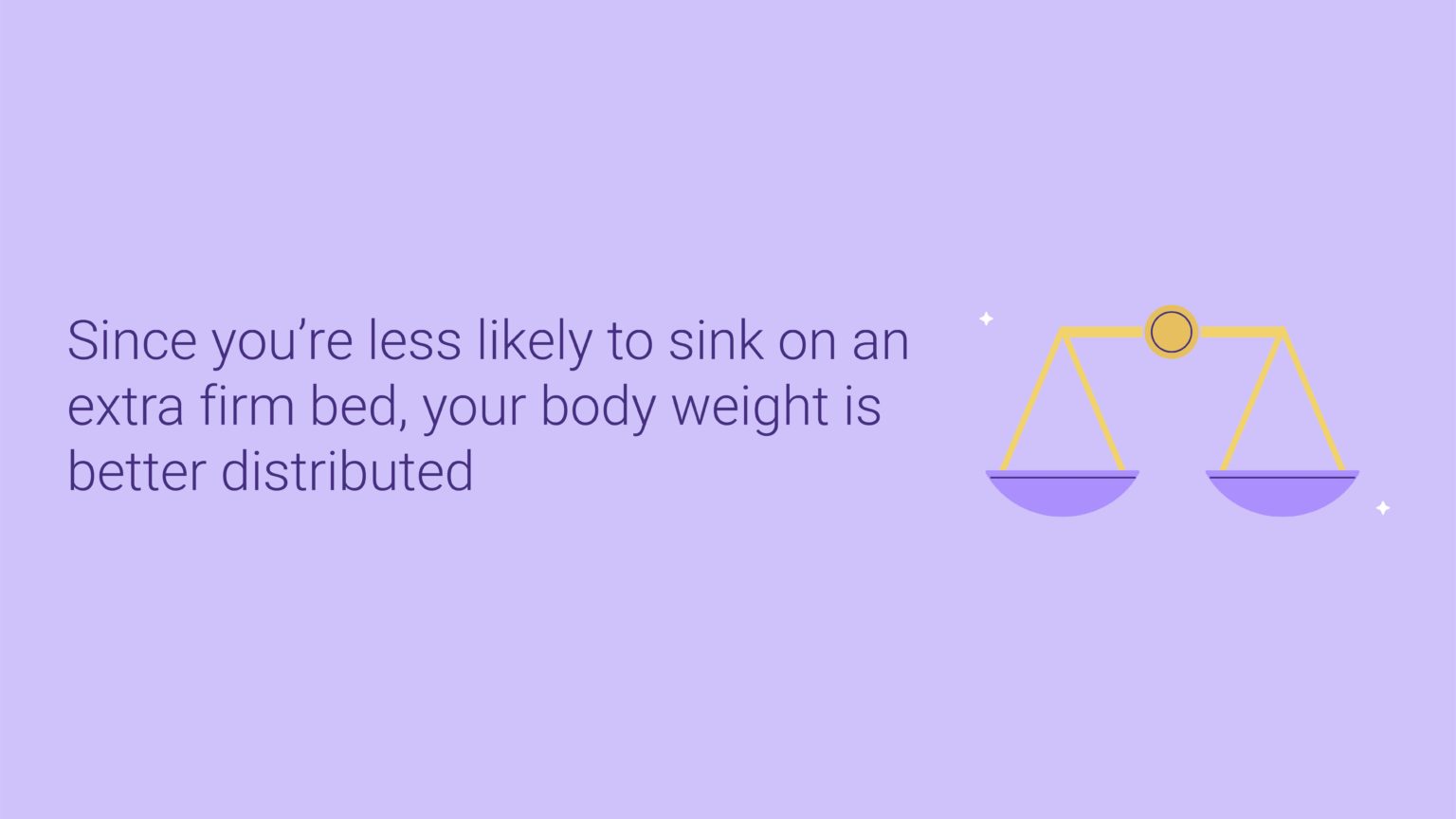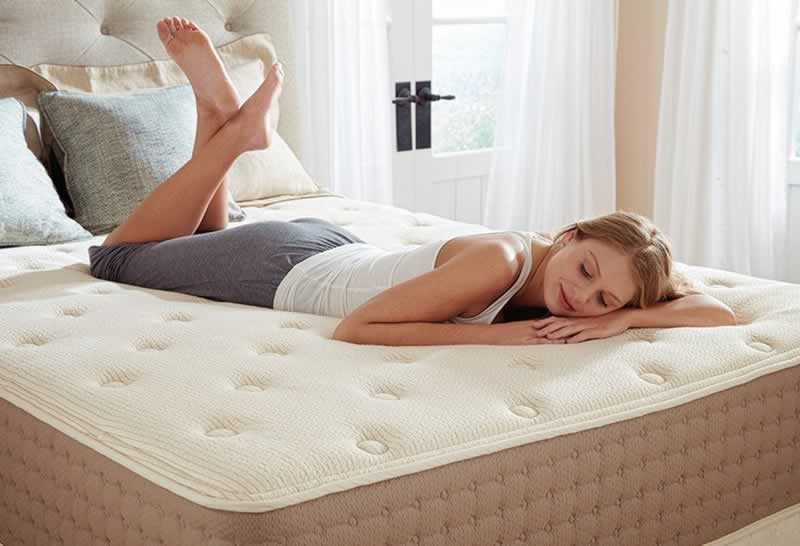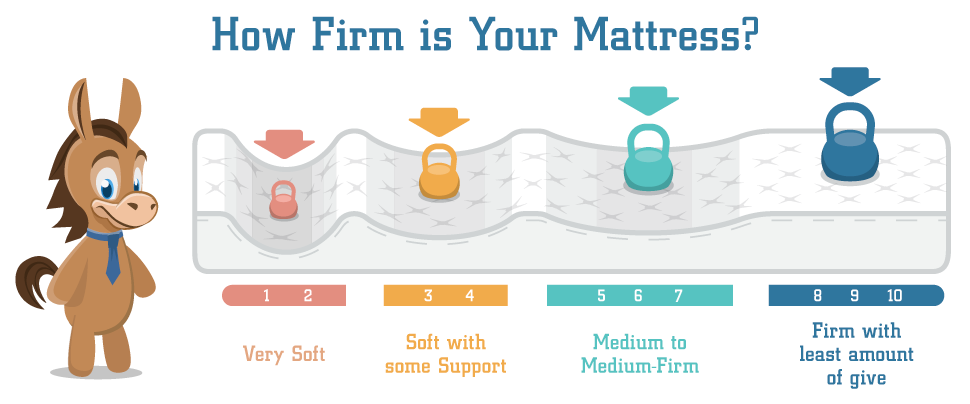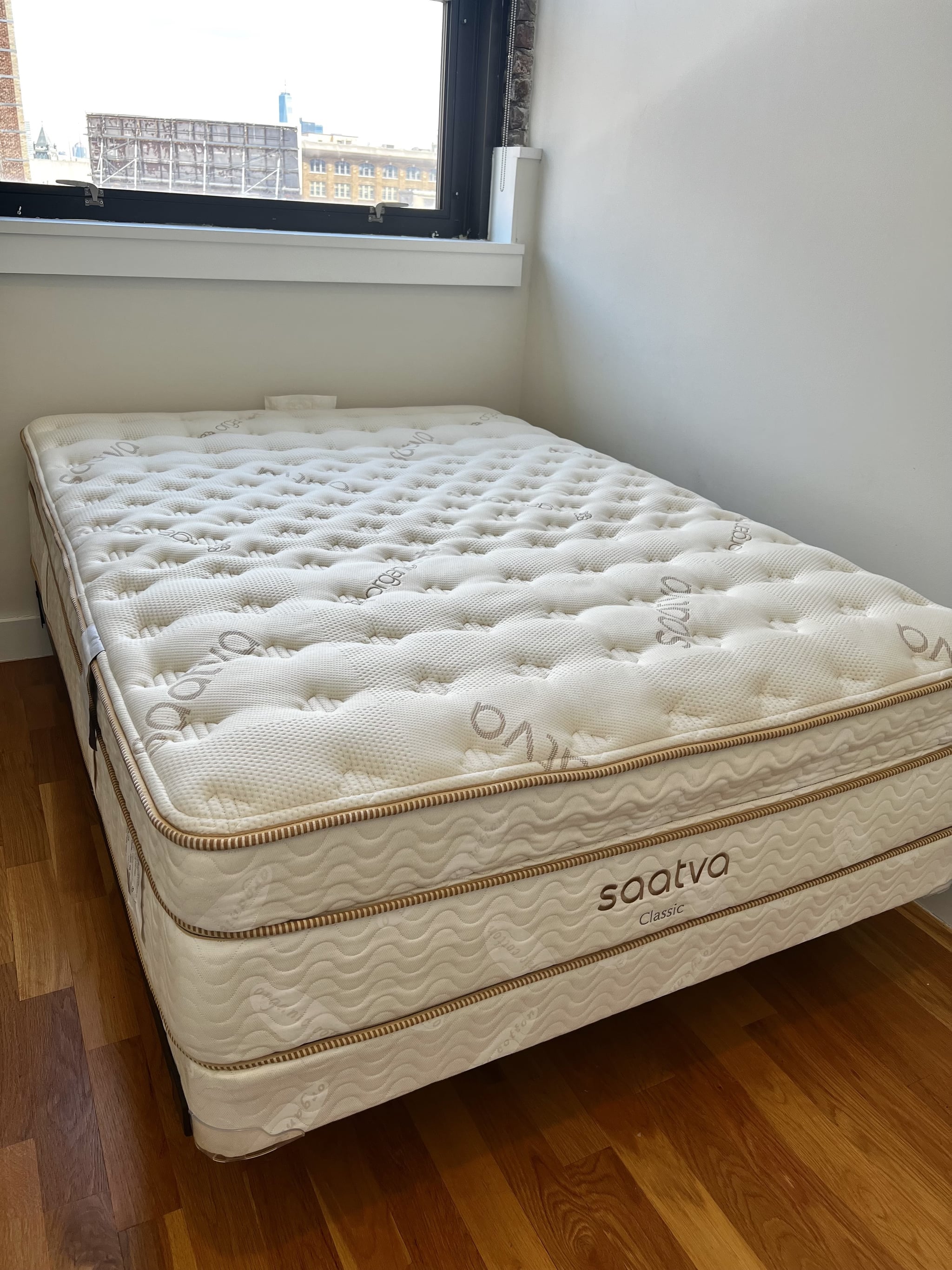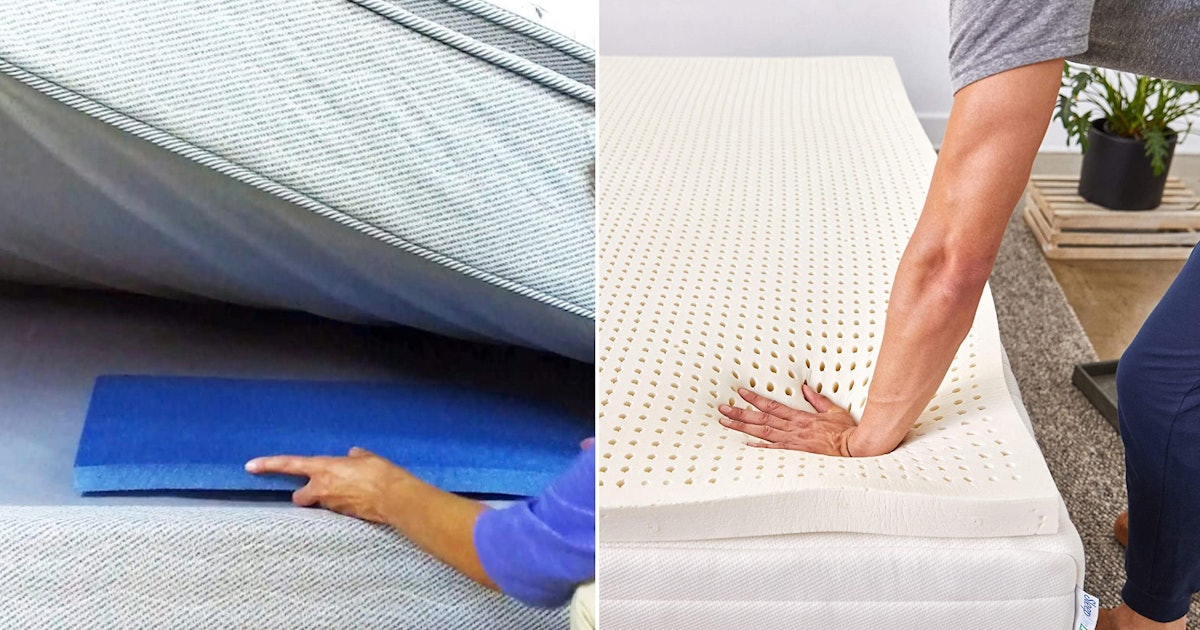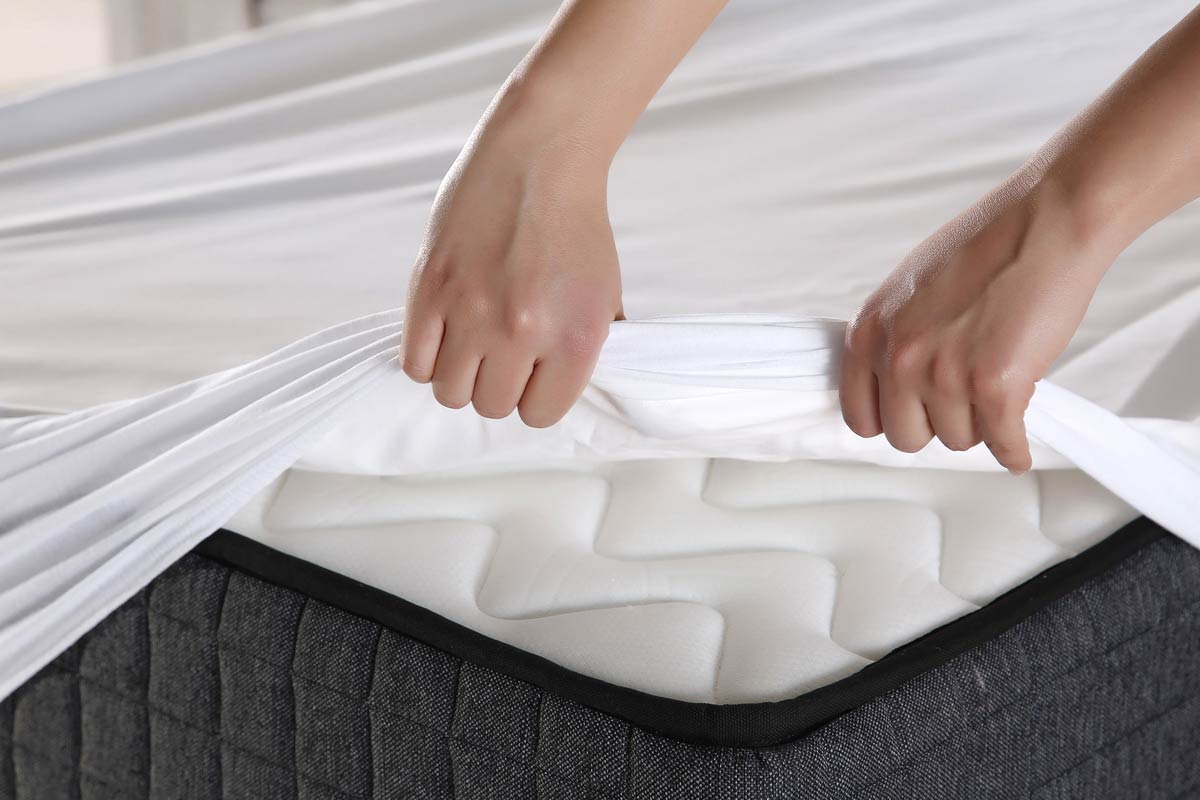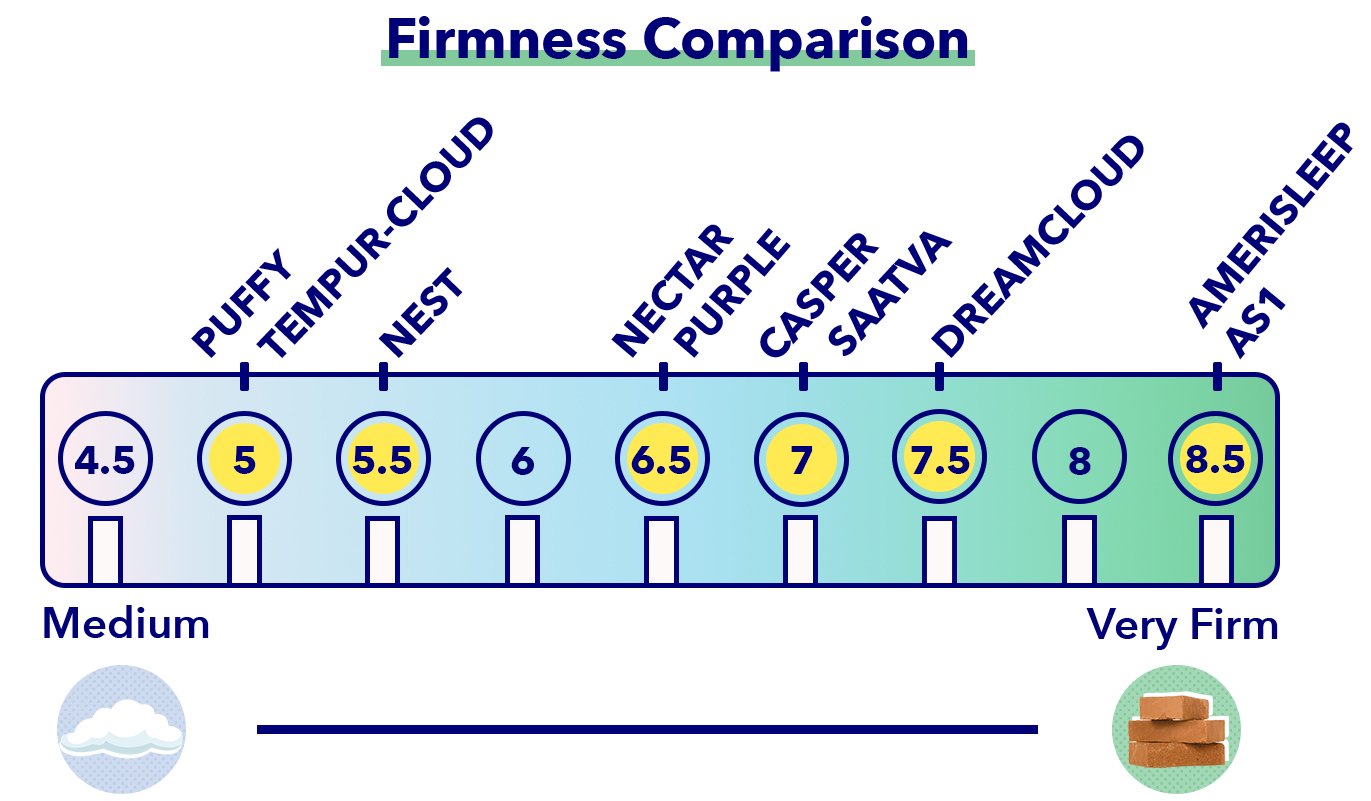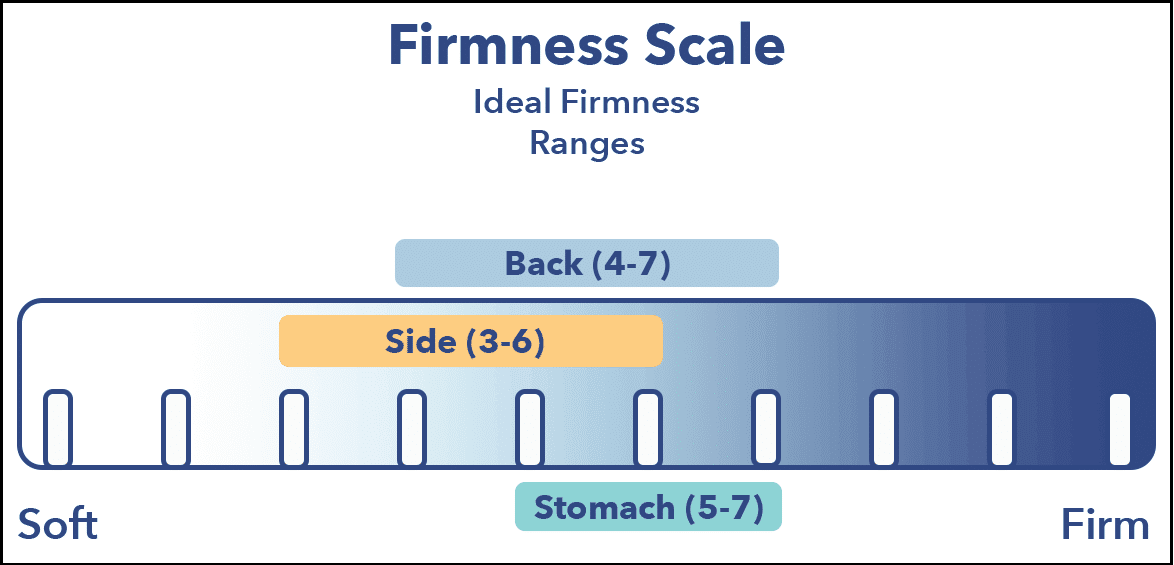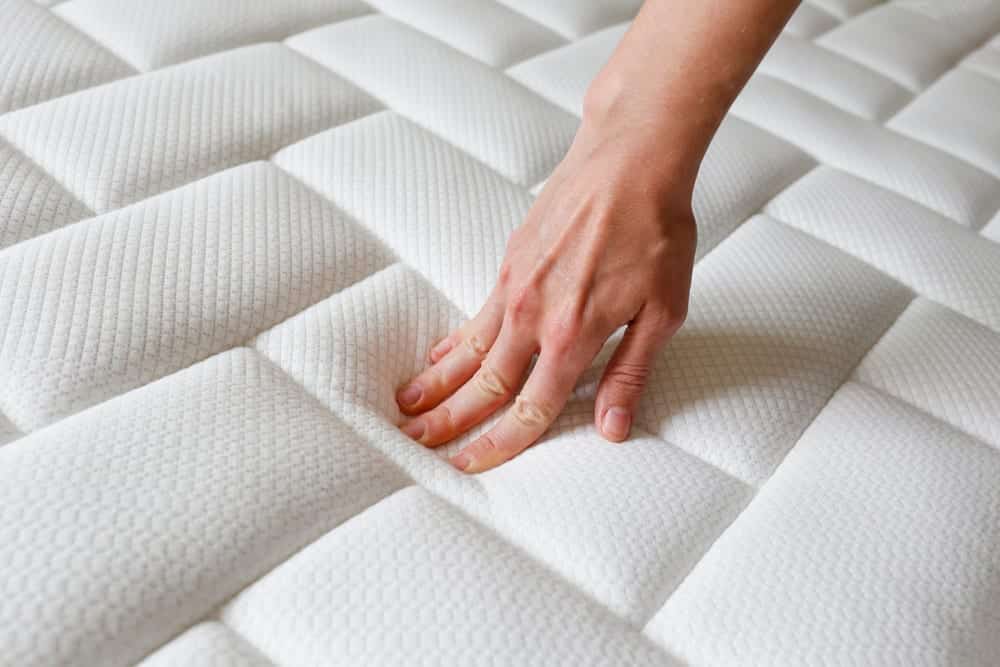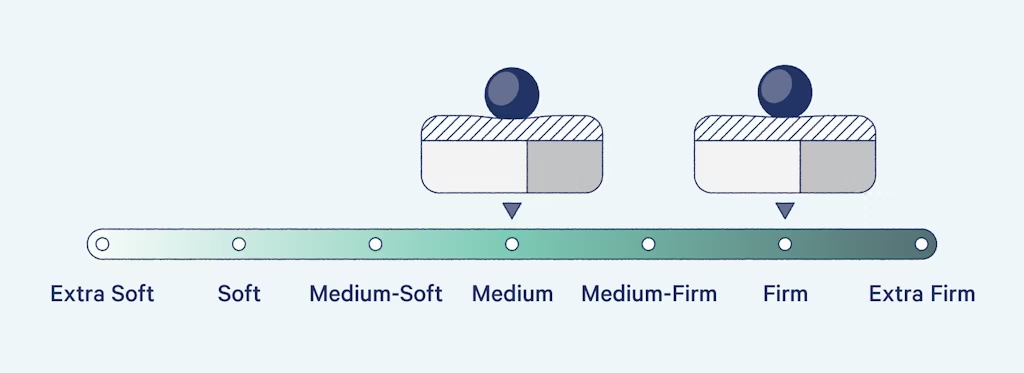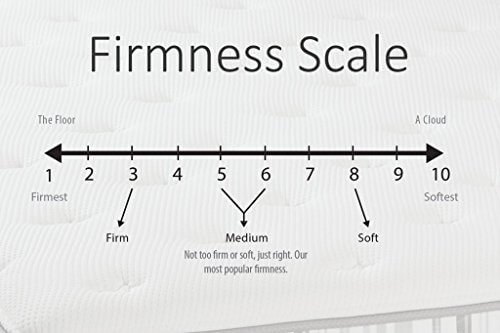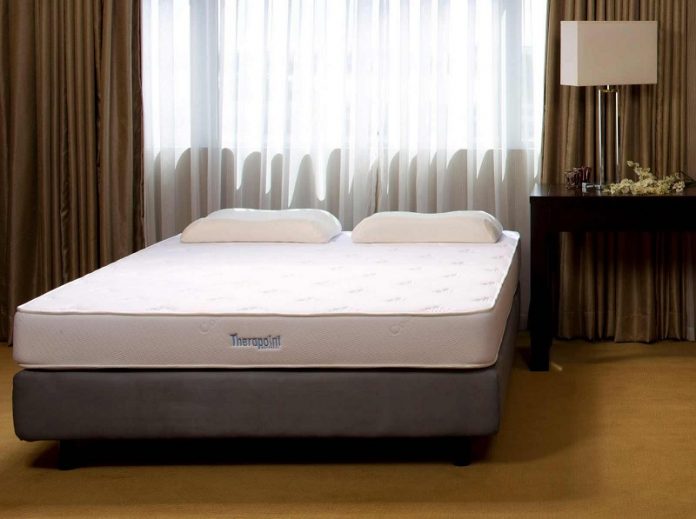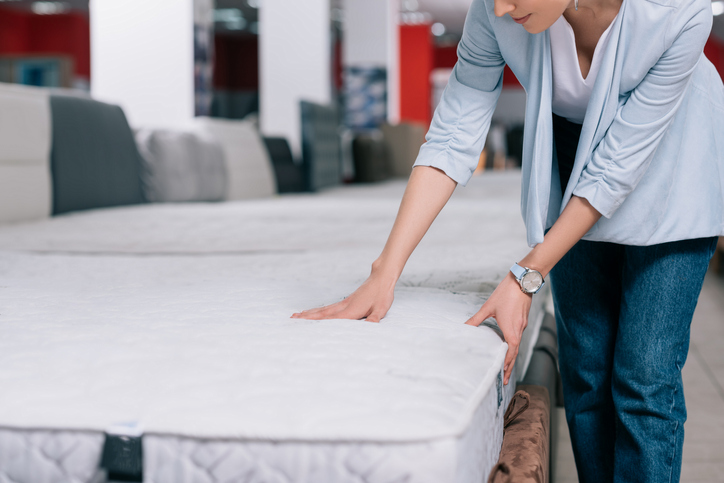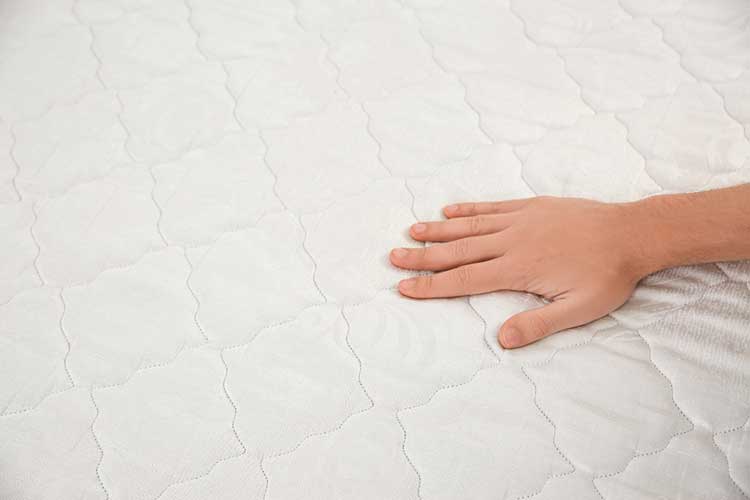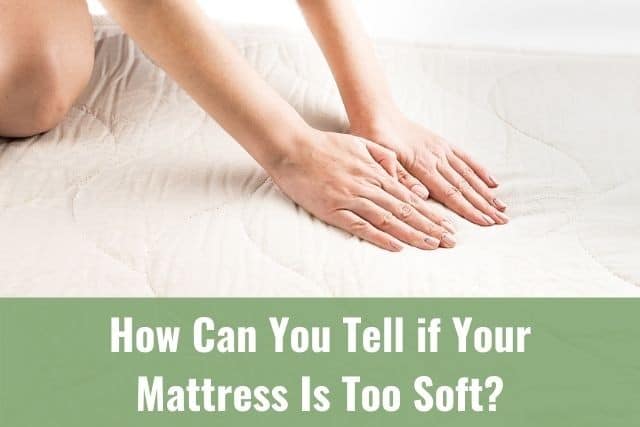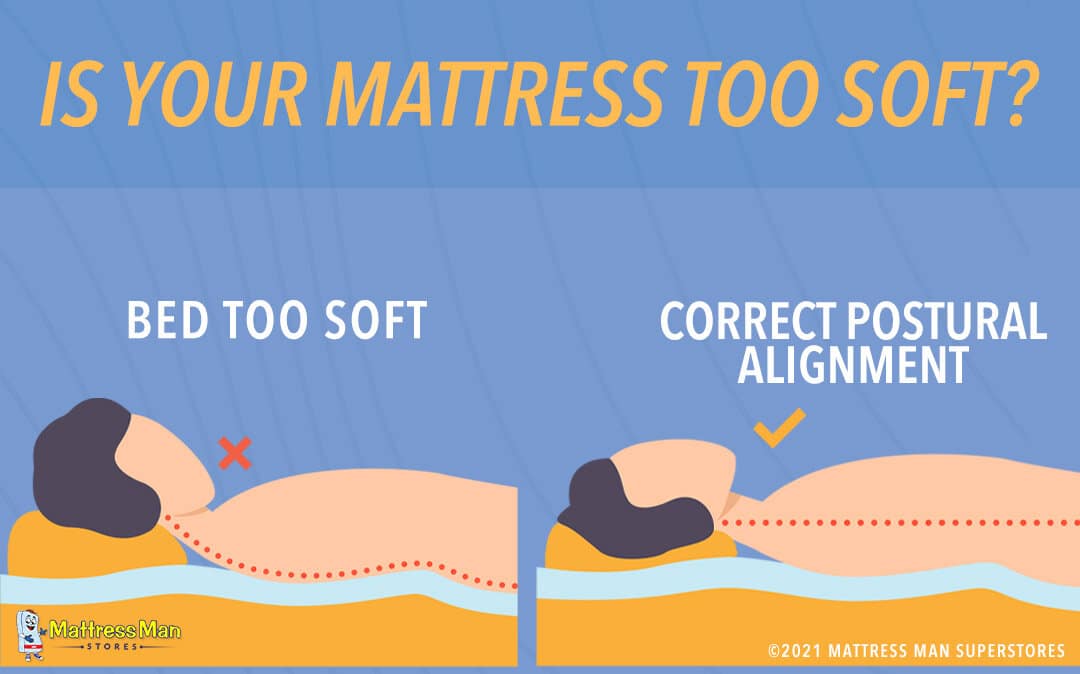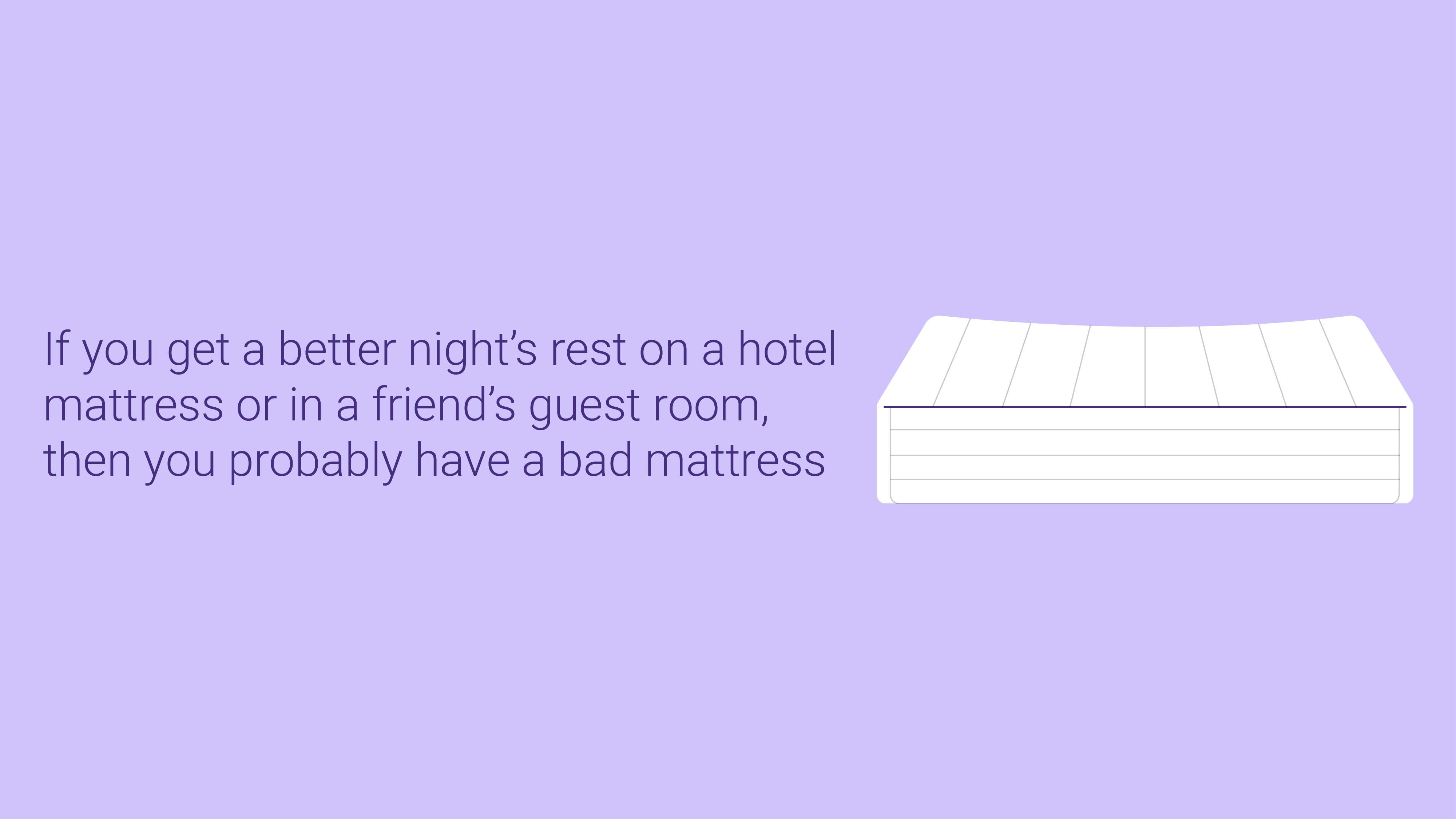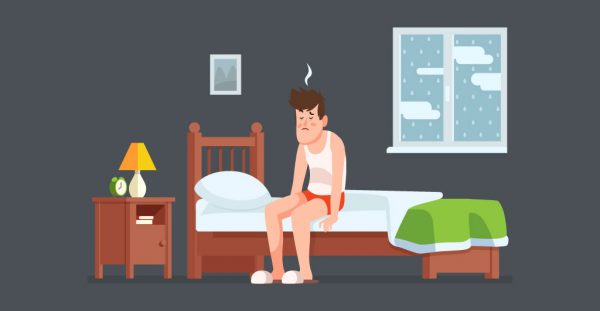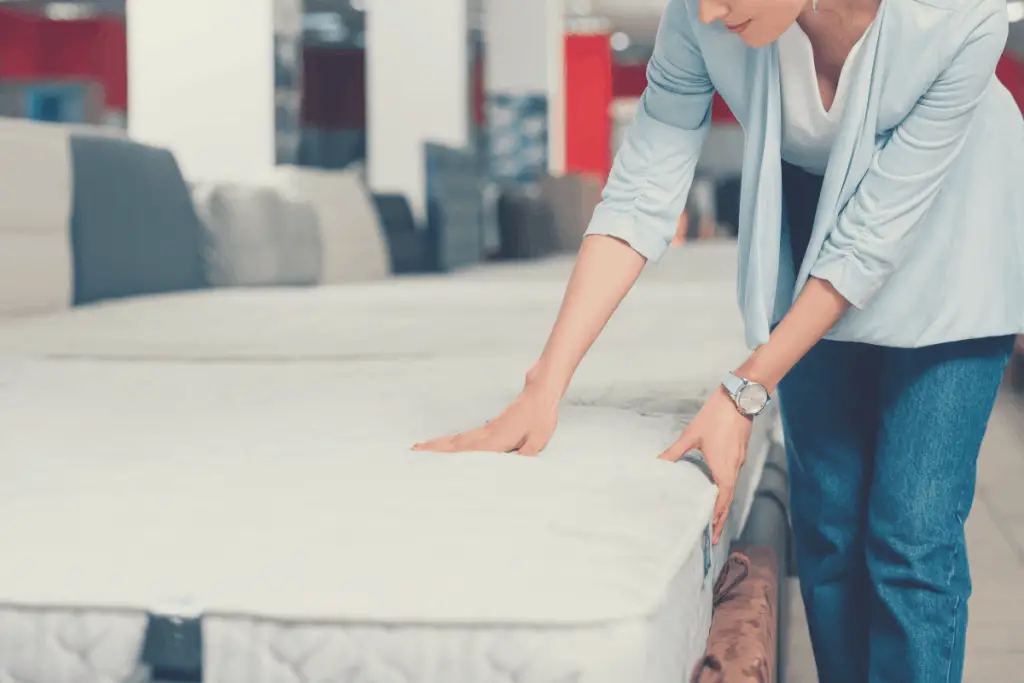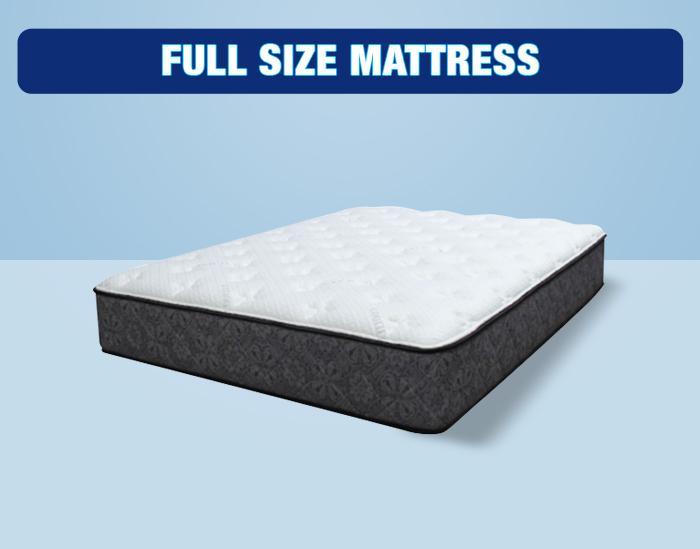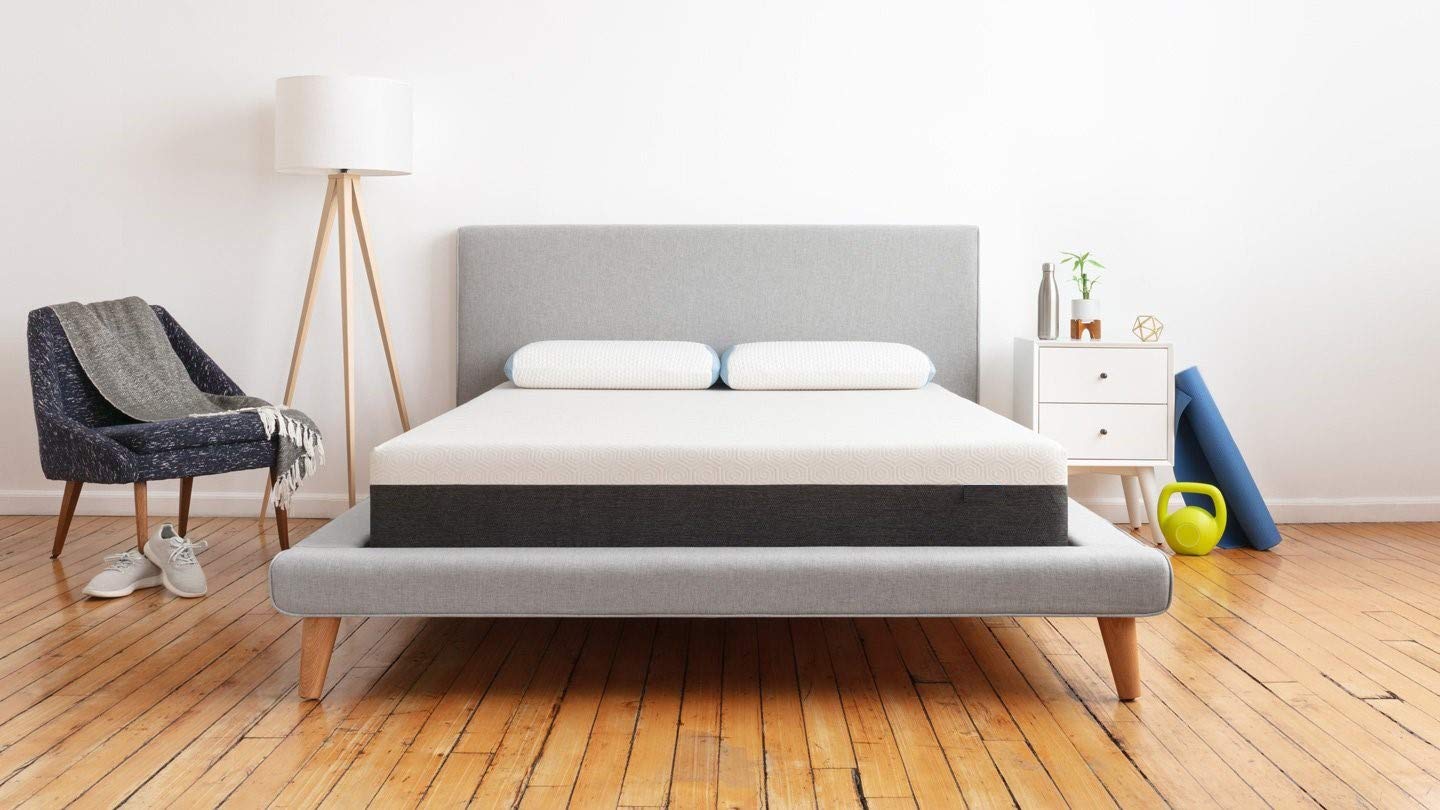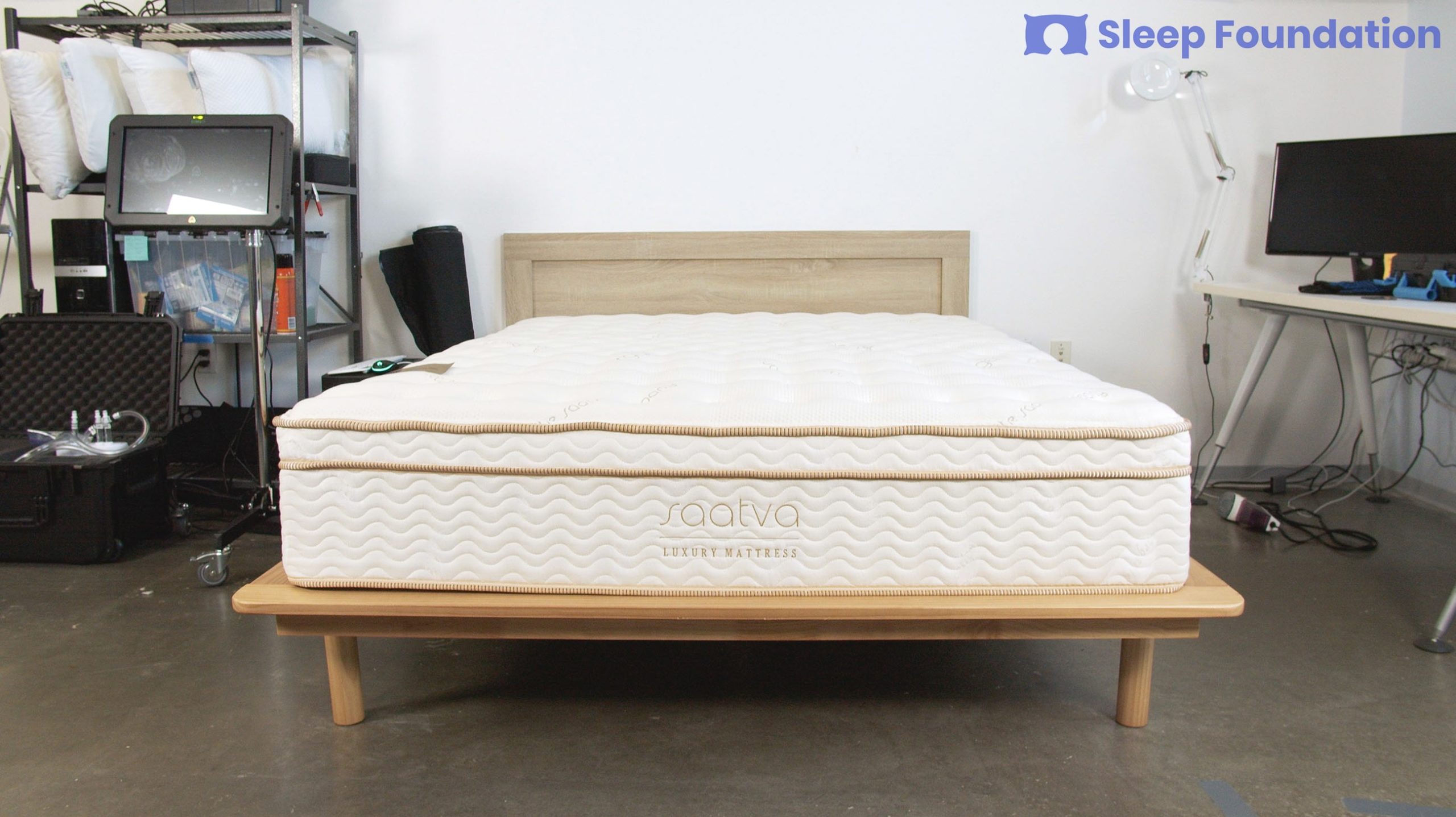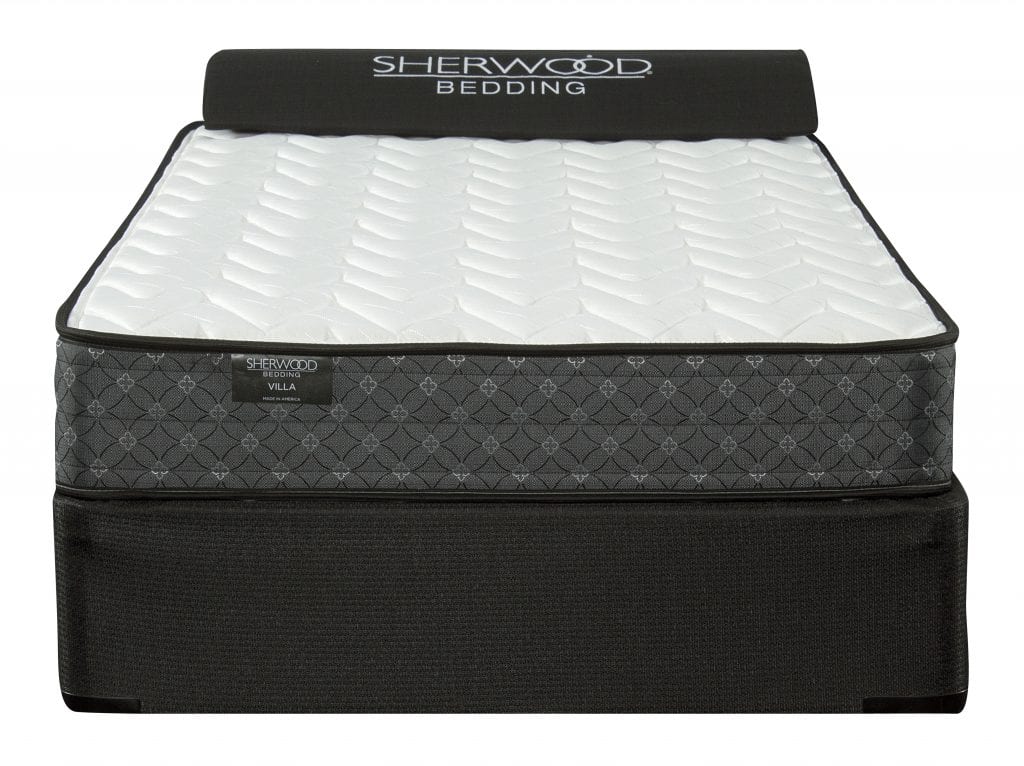Mattress Firmness Guide: How to Choose the Right Firmness Level
Choosing the right mattress firmness level can make all the difference in your quality of sleep. The level of firmness you prefer will depend on your personal preferences, sleeping position, and body weight. Some people prefer a soft and plush mattress, while others need a firmer surface for proper support. In this guide, we'll walk you through the different levels of mattress firmness and help you determine which one is best for you.
Mattress Sizes and Dimensions Guide
Before we dive into discussing firmness levels, it's important to understand the different mattress sizes and dimensions available. The most common sizes are twin, full, queen, king, and California king. A twin mattress is ideal for a child's room or a small guest room, while a king or California king is perfect for couples who want more space. Make sure to measure your room and consider your sleeping needs before choosing a mattress size.
Understanding Mattress Construction: What Makes a Mattress Firm?
The firmness of a mattress is determined by its construction and materials. A firm mattress typically has a dense support layer made of materials like high-density foam or coils. This layer provides a solid foundation and prevents the body from sinking too deeply into the mattress. Additionally, some mattresses may have a firmer top layer, such as memory foam or latex, for added support and pressure relief.
Best Mattresses for Firm Support
When it comes to finding the best mattress for firm support, it's important to consider your sleeping position. Back and stomach sleepers typically need a firmer surface to keep their spine aligned and prevent any back pain. Side sleepers, on the other hand, may prefer a softer mattress to cushion their shoulders and hips. Some top-rated mattresses for firm support include the Saatva Classic, Tempur-Pedic ProAdapt, and Beautyrest Black.
How to Determine the Right Mattress Size for Your Needs
Choosing the right mattress size is crucial for your comfort and sleep quality. To determine the right size for your needs, think about your sleeping habits and preferences. Do you sleep alone or with a partner? Do you move around a lot while sleeping? Do you have pets that sleep with you? These factors can help you determine the best size for your mattress.
The Benefits of a Firm Mattress
There are several benefits to sleeping on a firm mattress. For one, it can provide better spinal alignment and support for those with back pain. It can also help with pressure relief, as a firmer surface can distribute weight more evenly. Additionally, a firm mattress can be more durable and last longer than a softer one.
What Materials Make a Mattress Firm?
The materials used in a mattress can greatly affect its firmness level. As mentioned before, a dense support layer is key for a firm mattress. This can be made of high-density foam, coils, or a combination of both. The top layer can also play a role in firmness, with materials like latex and memory foam providing a firmer feel.
Mattress Firmness Scale: Understanding Firmness Ratings
Many mattress companies use a firmness scale to rate their mattresses and help customers determine the level of firmness they prefer. The scale typically ranges from 1-10, with 1 being extremely soft and 10 being extremely firm. Most people prefer a mattress with a firmness rating between 5-7. However, it's important to keep in mind that firmness ratings can vary between brands and models.
Choosing the Right Mattress Size for Your Bedroom
In addition to considering your sleeping needs, it's also important to think about the size of your bedroom when choosing a mattress. A larger mattress may not fit comfortably in a smaller room, leaving little space for other furniture or movement. Make sure to measure your room and consider the layout before deciding on a mattress size.
How to Tell if Your Mattress is Too Firm or Too Soft
If you're unsure if your current mattress is the right firmness level for you, there are a few telltale signs to look for. If you wake up with body aches and pains, your mattress may be too firm. On the other hand, if you constantly feel like you're sinking into your mattress and have trouble getting comfortable, it may be too soft. Pay attention to your body and make adjustments as needed for a better night's sleep.
The Importance of Choosing the Right Mattress Size and Firmness in House Design

Choosing the Right Mattress Size
 When designing a house, most people tend to focus on the aesthetics and functionality of the space. However, one crucial aspect that often gets overlooked is the size of the mattress.
Choosing the right mattress size
is essential not only for the overall look of the bedroom but also for the comfort and quality of sleep.
A standard mattress size
for a single person is a twin or a full size, while a queen or king size is perfect for couples. However, with the variety of options available in the market, it can be overwhelming to choose the right size for your specific needs. Consider the size of your bedroom and the number of people who will be using the bed to determine the ideal mattress size.
Choosing a mattress that is too small
can make the room look unbalanced and cramped, while
opting for a mattress that is too big
can make the room look cluttered and hinder movement.
When designing a house, most people tend to focus on the aesthetics and functionality of the space. However, one crucial aspect that often gets overlooked is the size of the mattress.
Choosing the right mattress size
is essential not only for the overall look of the bedroom but also for the comfort and quality of sleep.
A standard mattress size
for a single person is a twin or a full size, while a queen or king size is perfect for couples. However, with the variety of options available in the market, it can be overwhelming to choose the right size for your specific needs. Consider the size of your bedroom and the number of people who will be using the bed to determine the ideal mattress size.
Choosing a mattress that is too small
can make the room look unbalanced and cramped, while
opting for a mattress that is too big
can make the room look cluttered and hinder movement.
Why Mattress Firmness Matters
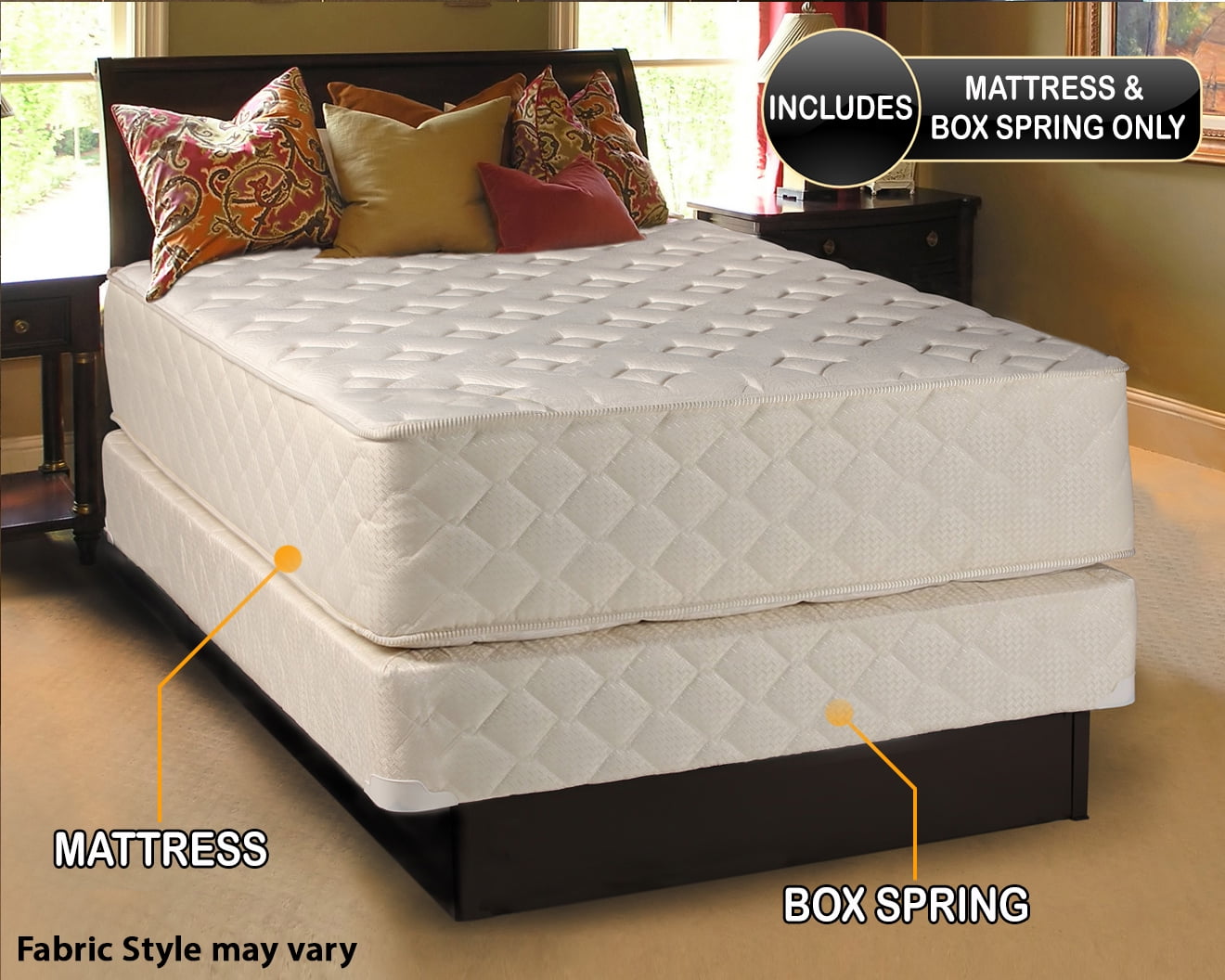 Apart from the size, the firmness of the mattress is another crucial factor to consider in house design.
The level of firmness
can greatly affect the comfort and support of the mattress. A too soft mattress can lead to back pain and discomfort, while a too firm mattress can cause pressure points and disrupt sleep.
When choosing the right mattress firmness
, consider your sleeping position and any specific health concerns you may have. For example,
a side sleeper
may benefit from a softer mattress, while
a back sleeper
may prefer a firmer one. Additionally,
people with back pain
may find a medium-firm mattress more comfortable as it provides adequate support without being too hard.
In conclusion,
choosing the right mattress size and firmness
is a crucial aspect of house design that should not be overlooked. It not only affects the overall look of the bedroom but also plays a significant role in the quality of sleep and overall comfort. Consider your specific needs and preferences when selecting a mattress to ensure the perfect balance between style and functionality in your home.
Apart from the size, the firmness of the mattress is another crucial factor to consider in house design.
The level of firmness
can greatly affect the comfort and support of the mattress. A too soft mattress can lead to back pain and discomfort, while a too firm mattress can cause pressure points and disrupt sleep.
When choosing the right mattress firmness
, consider your sleeping position and any specific health concerns you may have. For example,
a side sleeper
may benefit from a softer mattress, while
a back sleeper
may prefer a firmer one. Additionally,
people with back pain
may find a medium-firm mattress more comfortable as it provides adequate support without being too hard.
In conclusion,
choosing the right mattress size and firmness
is a crucial aspect of house design that should not be overlooked. It not only affects the overall look of the bedroom but also plays a significant role in the quality of sleep and overall comfort. Consider your specific needs and preferences when selecting a mattress to ensure the perfect balance between style and functionality in your home.





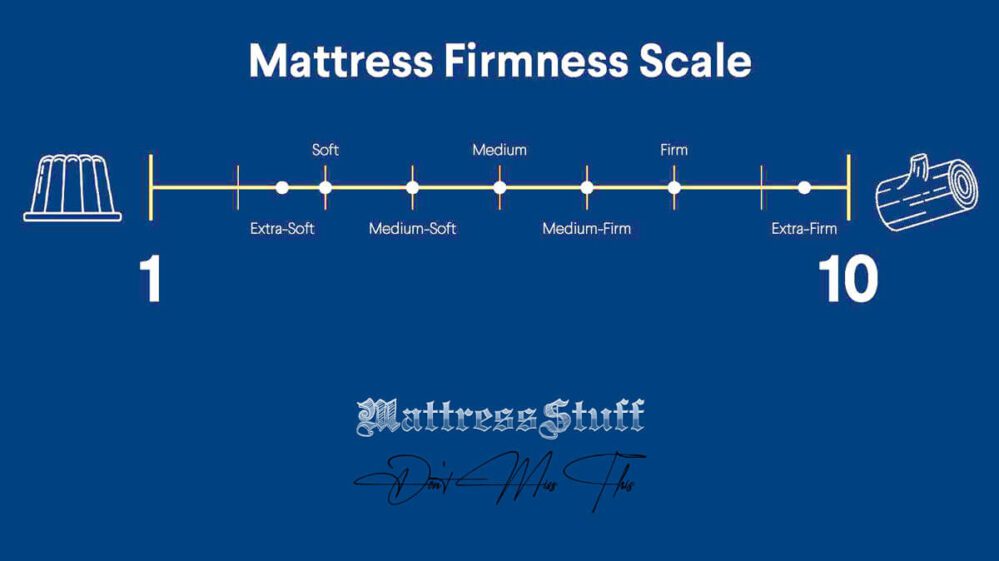

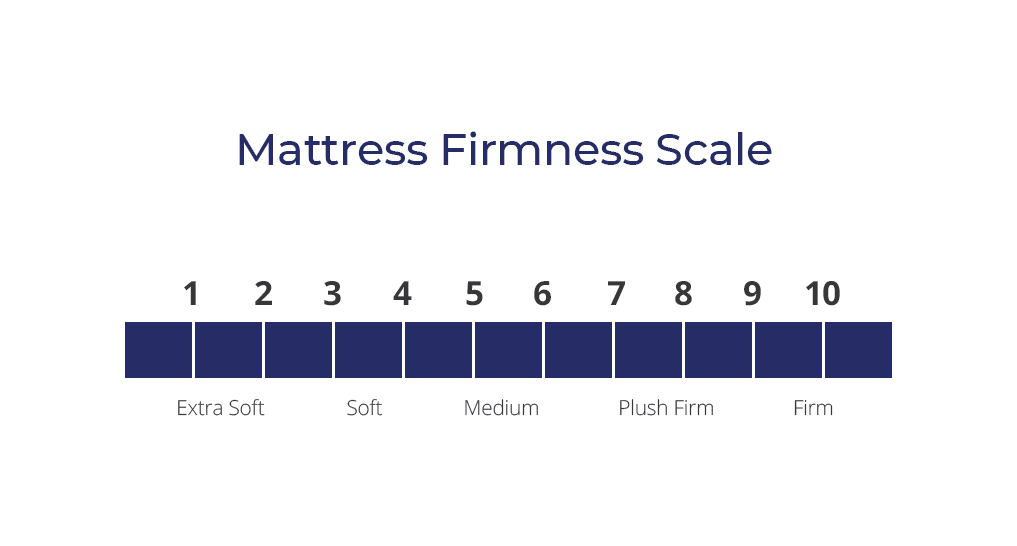
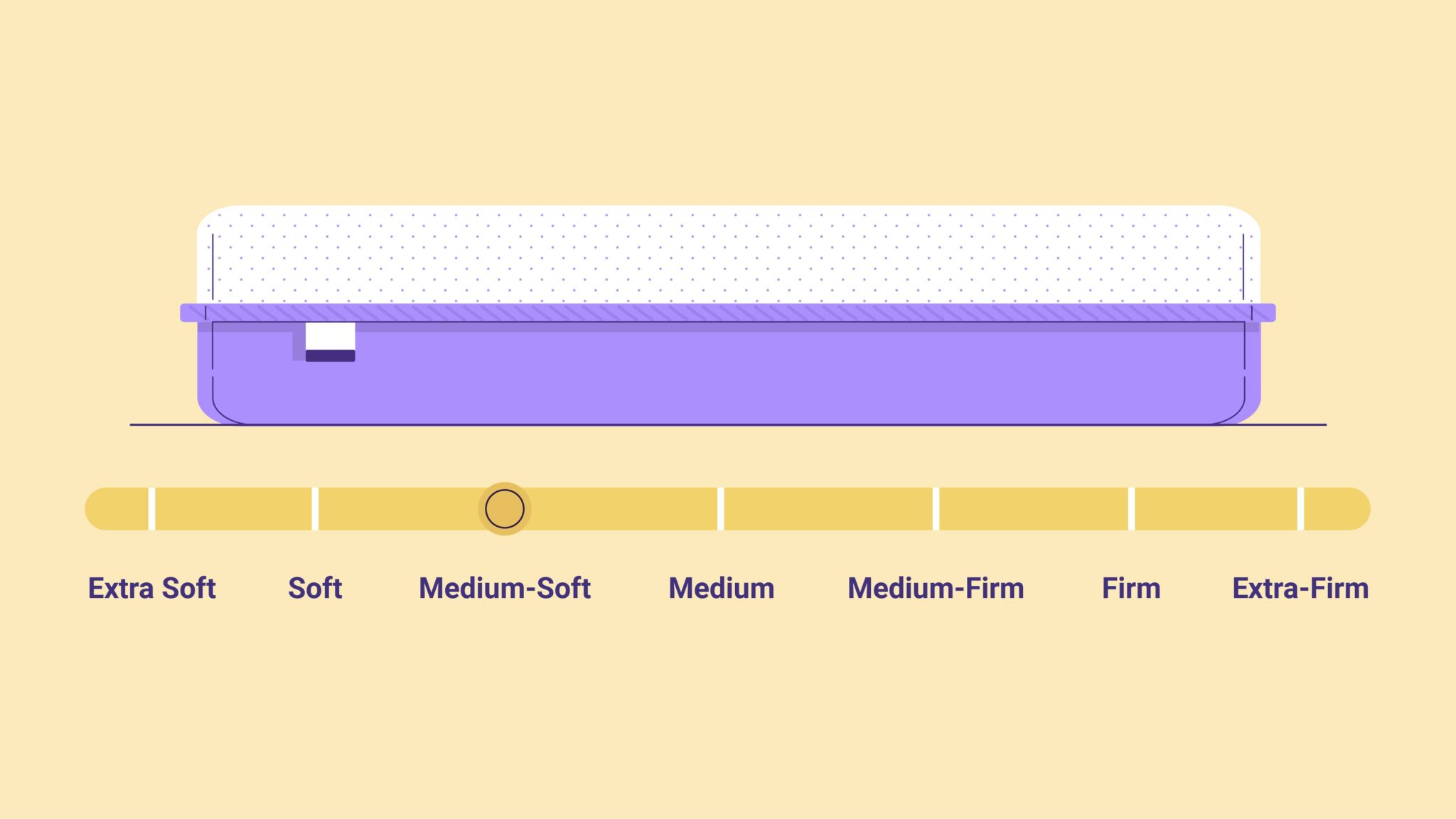


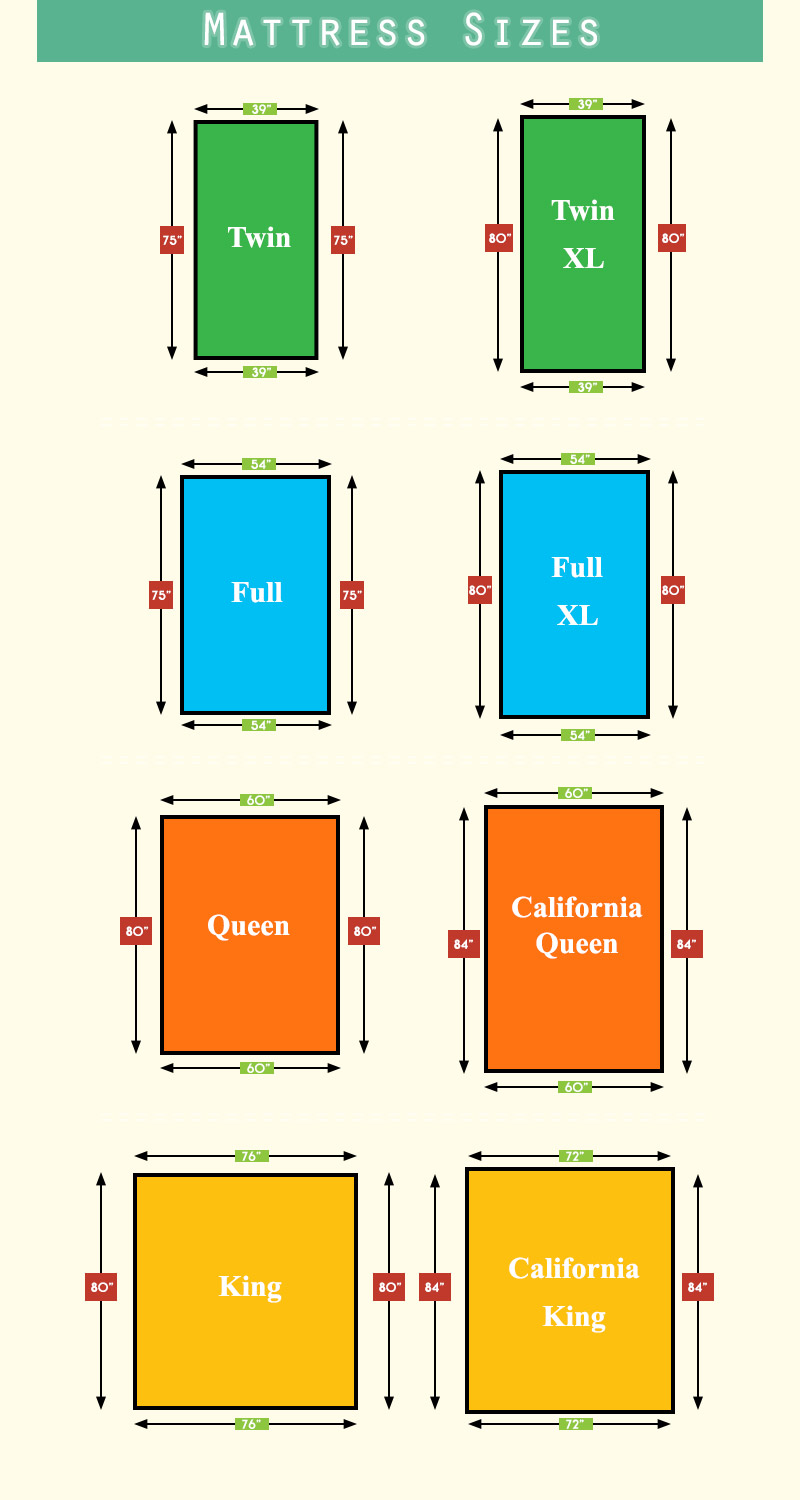

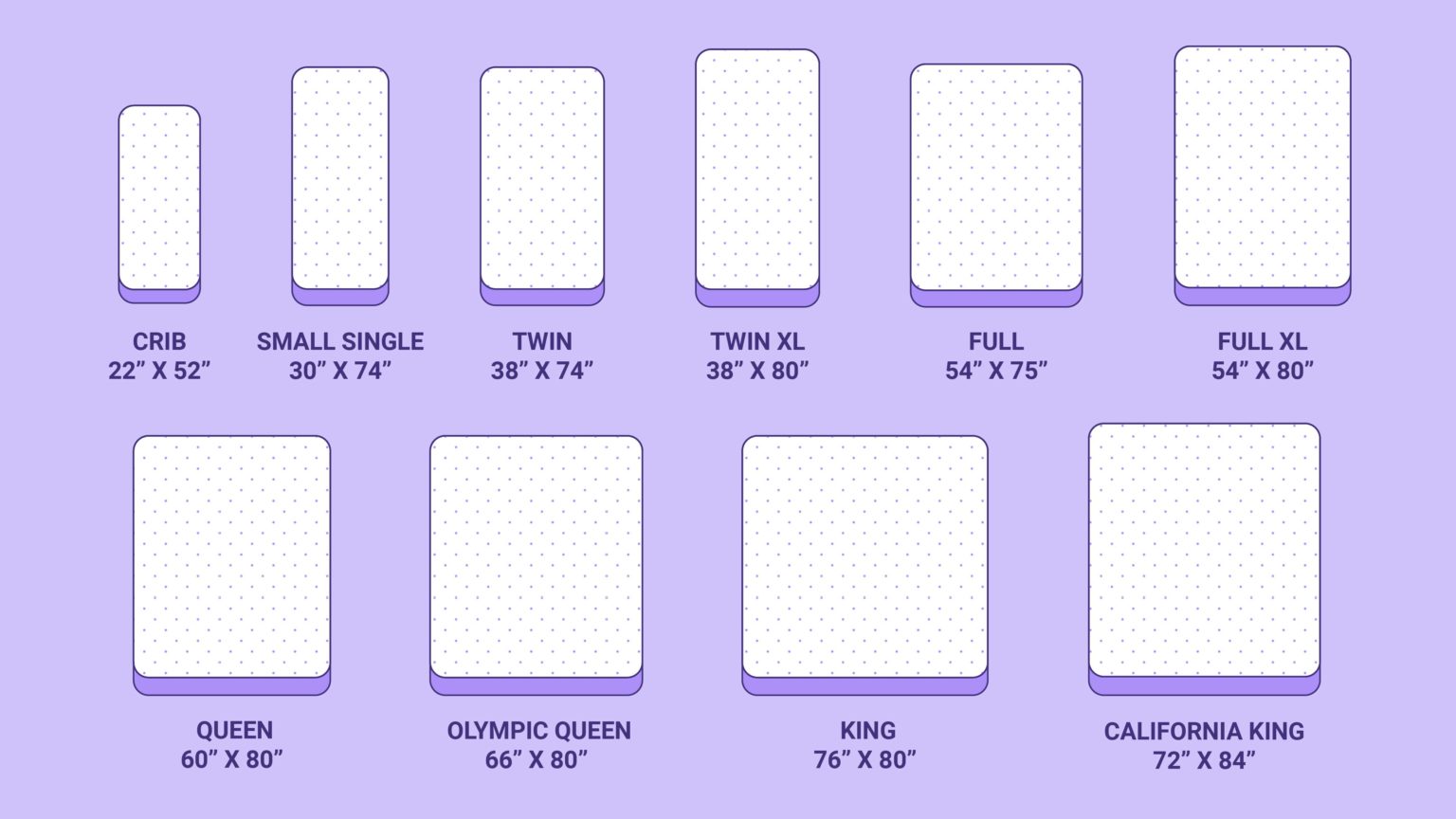

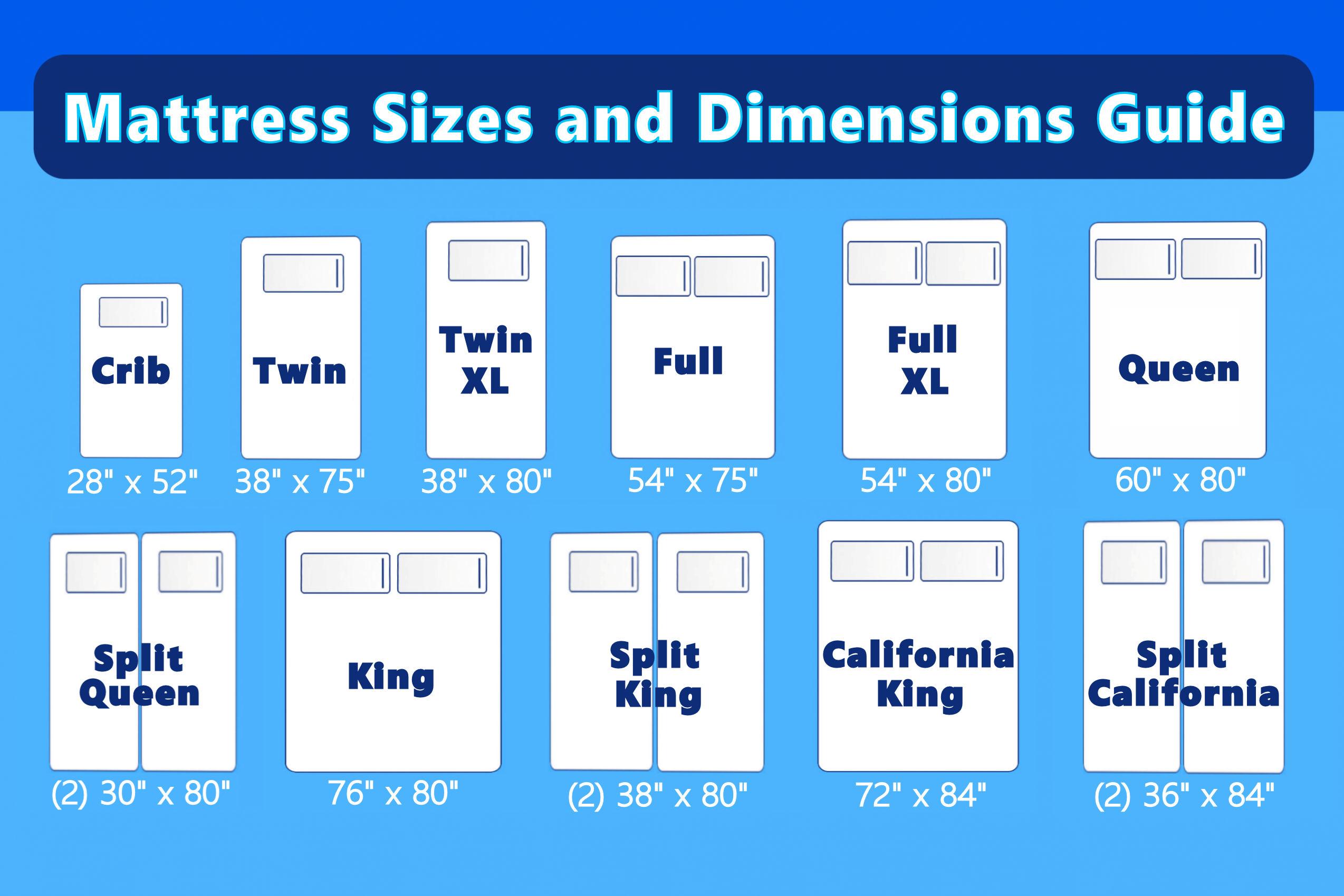

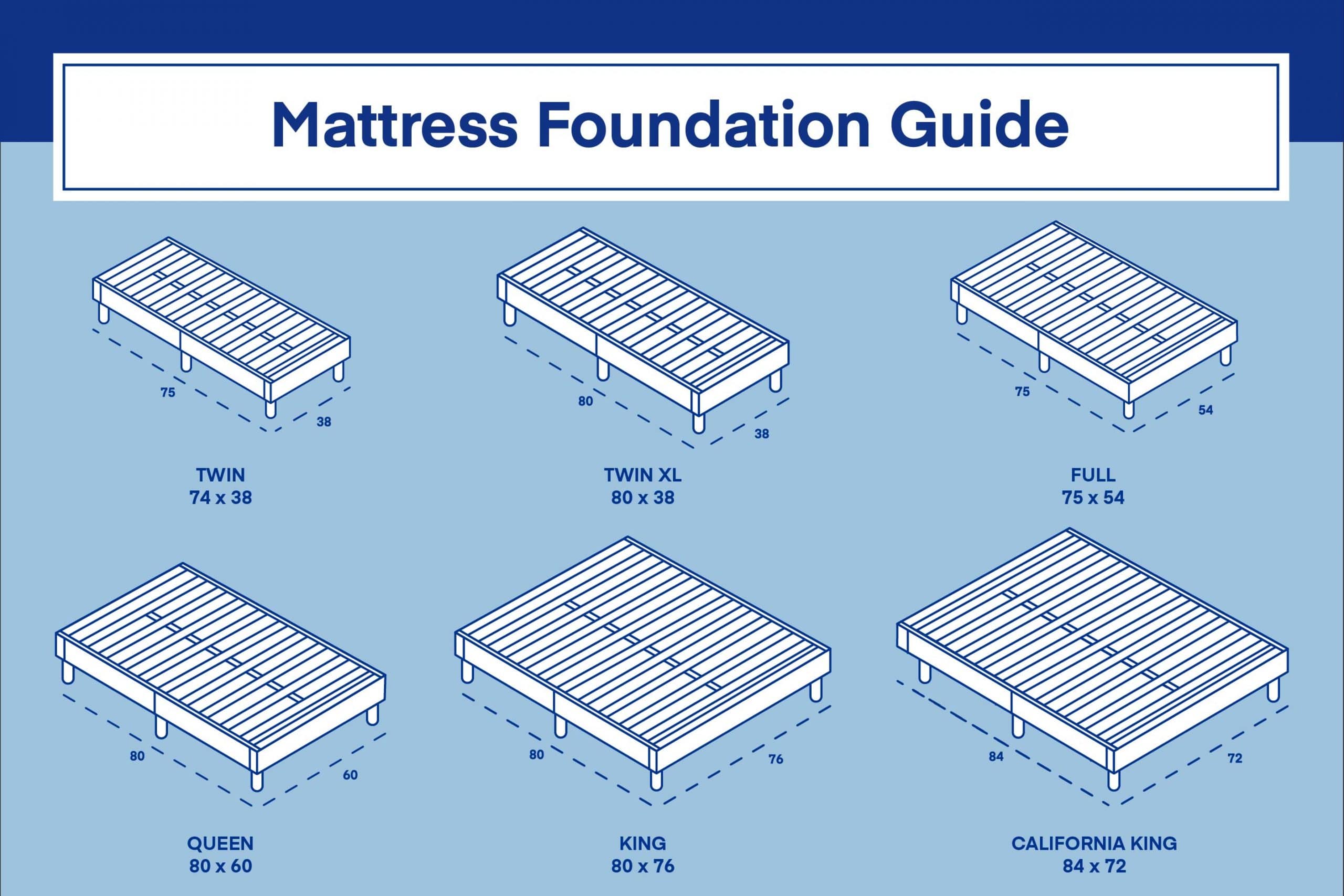
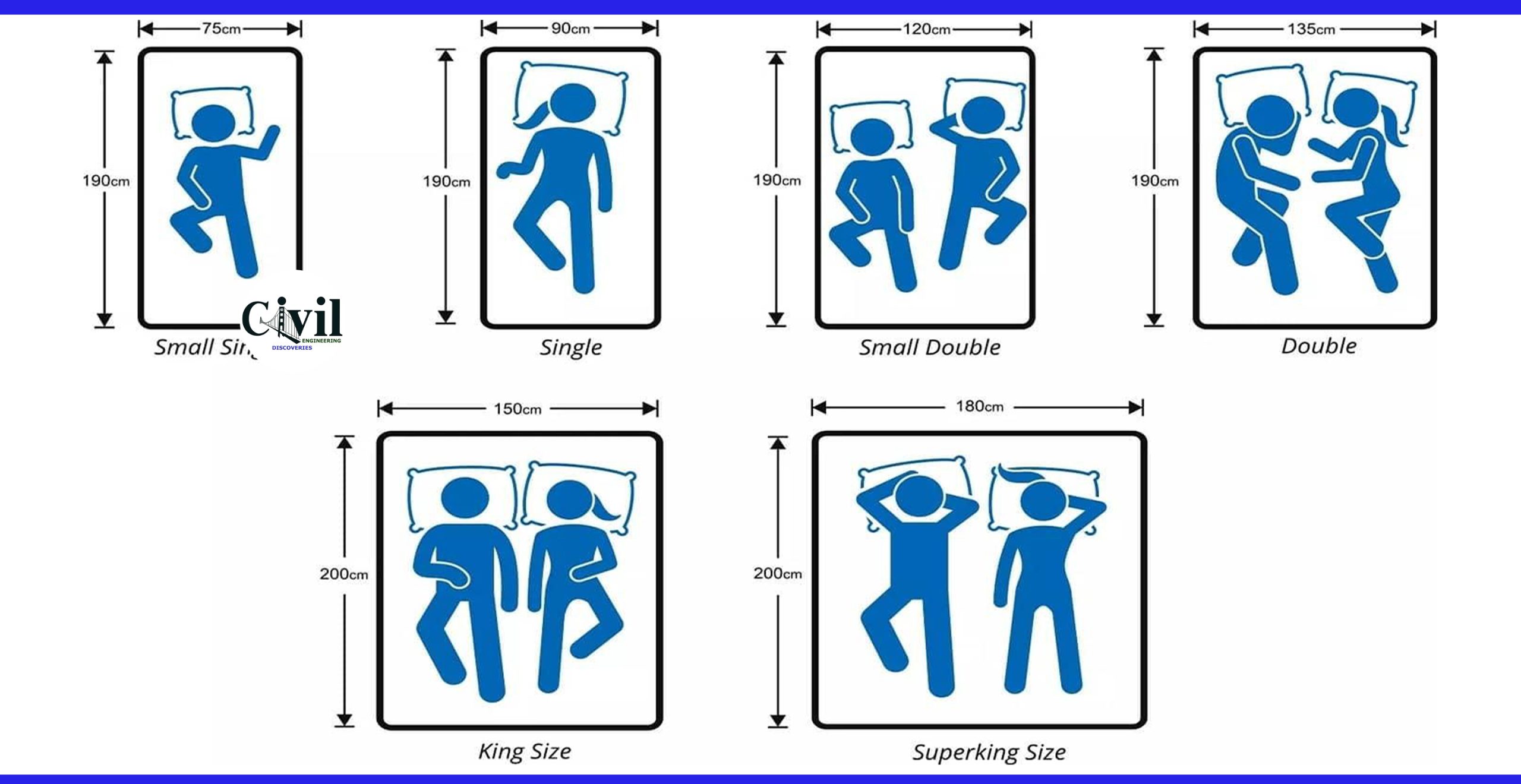
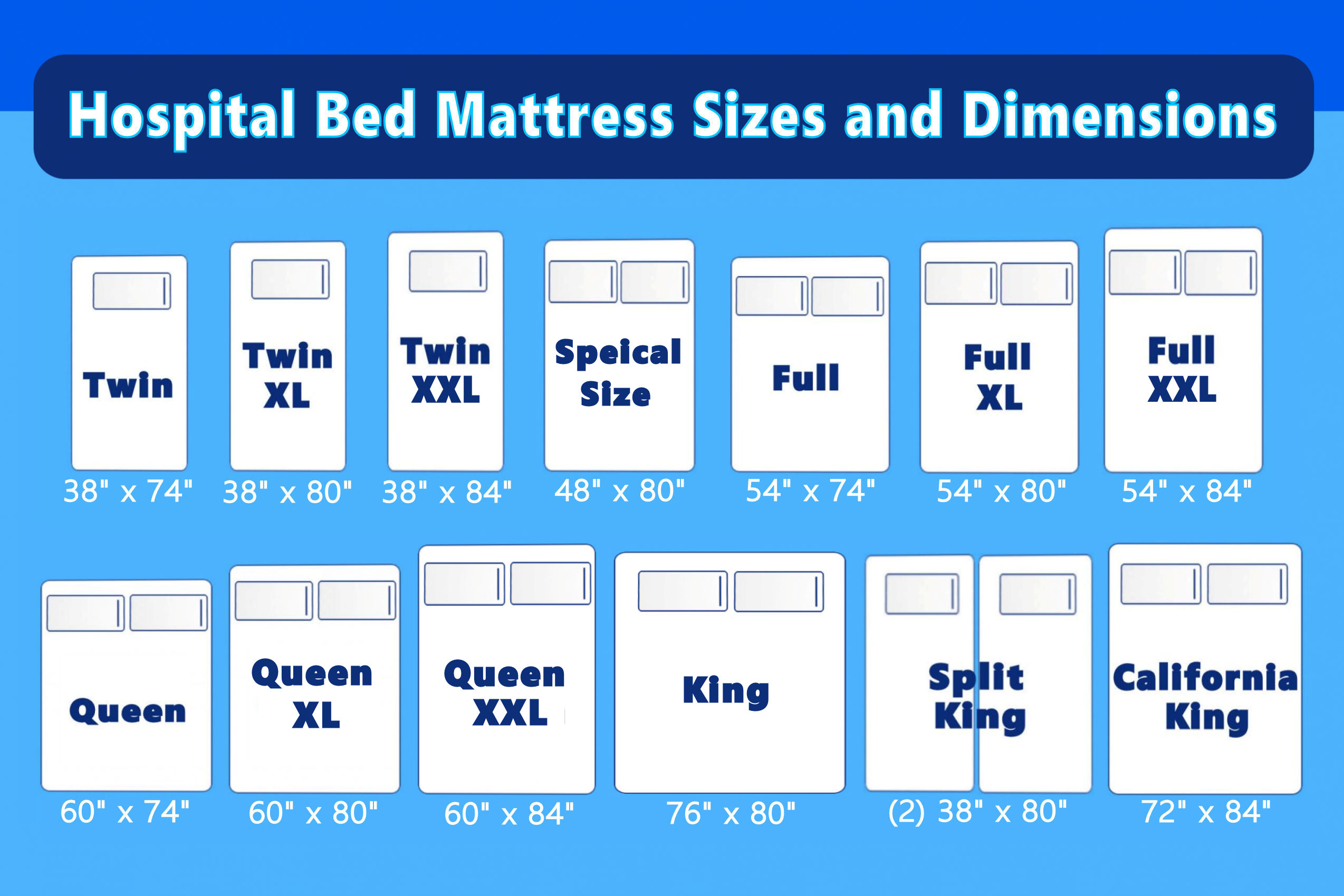



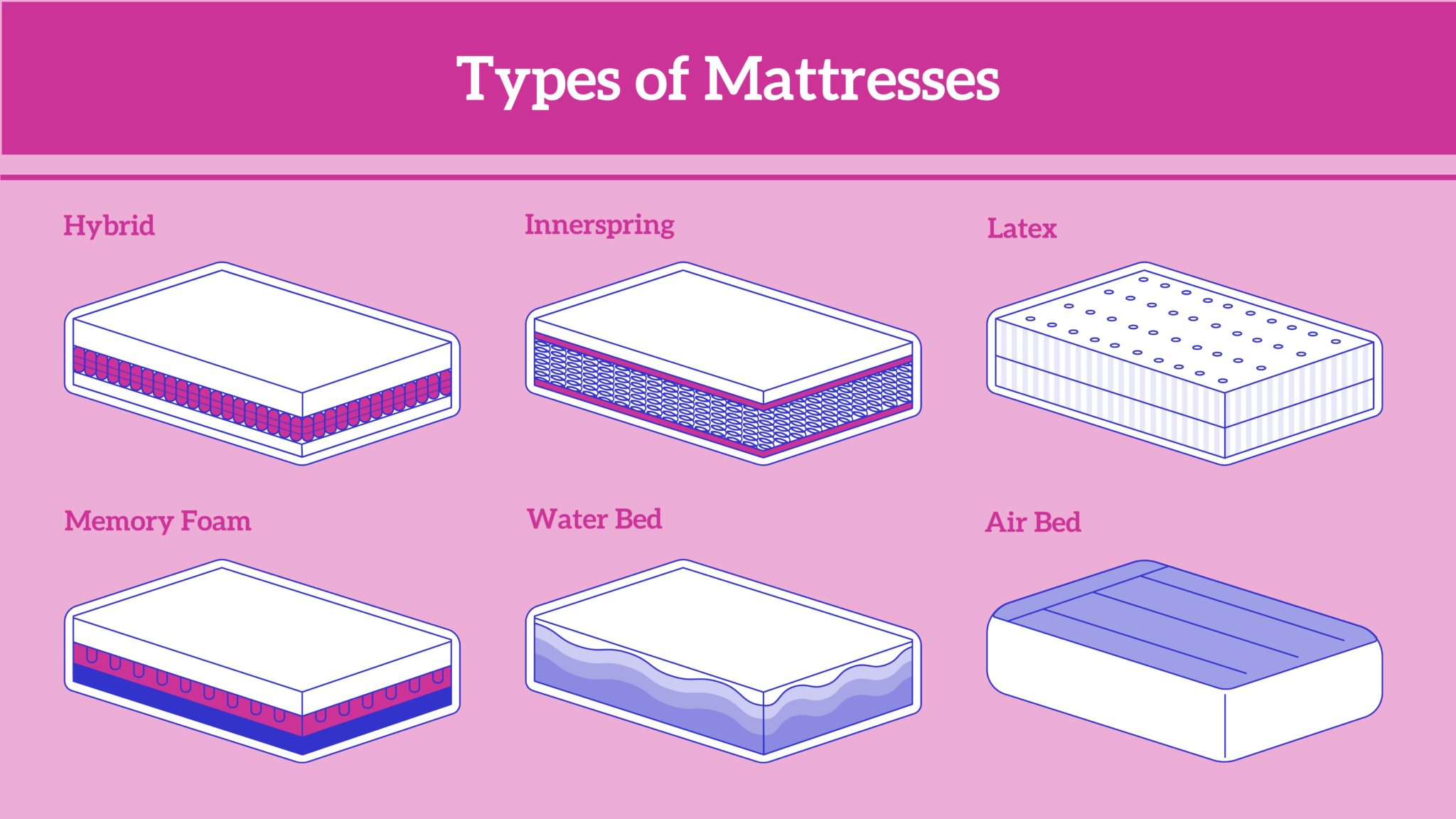
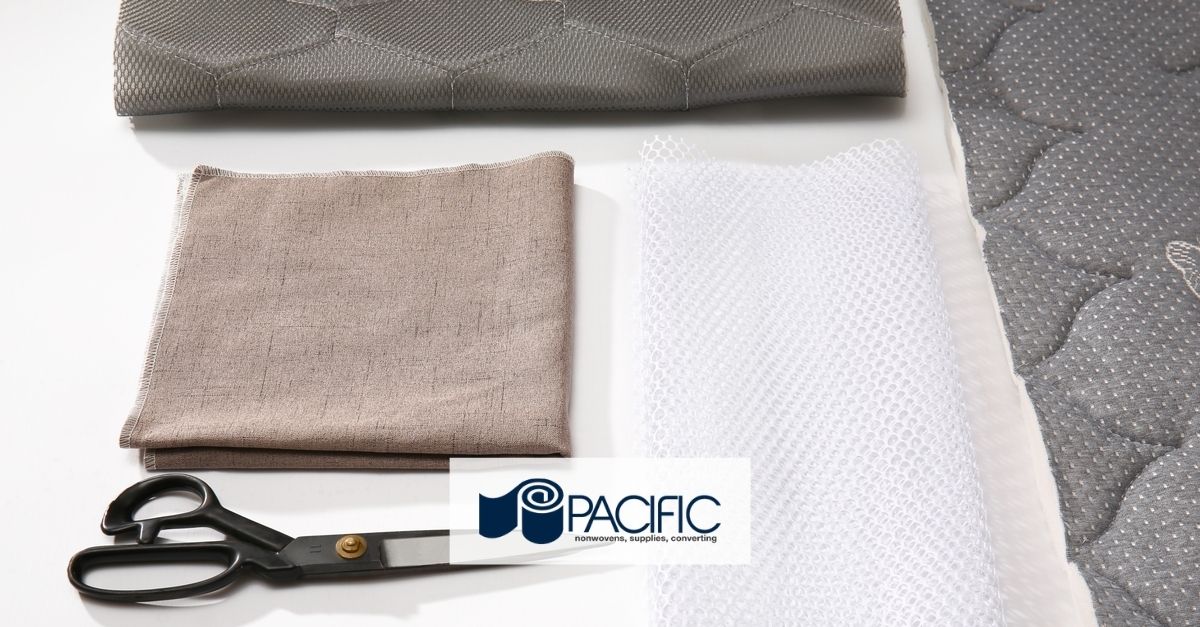


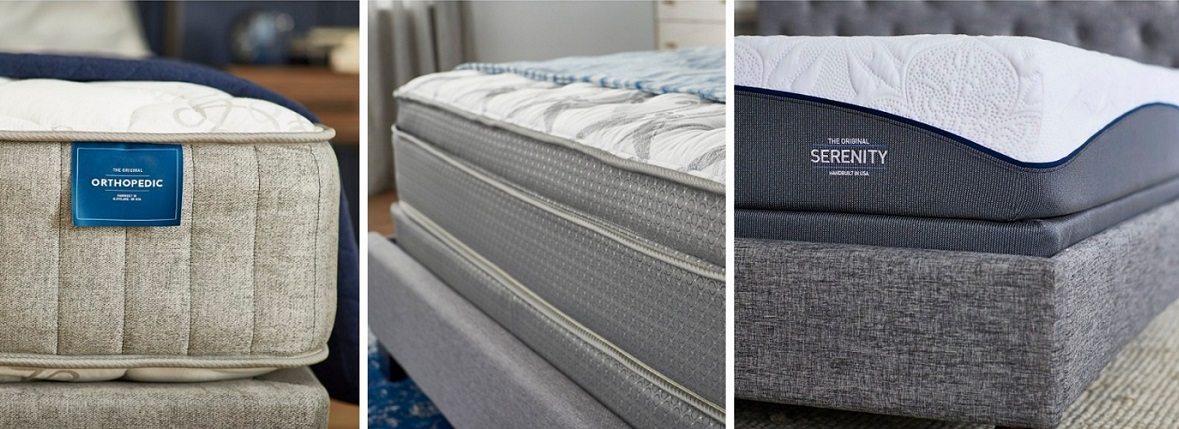




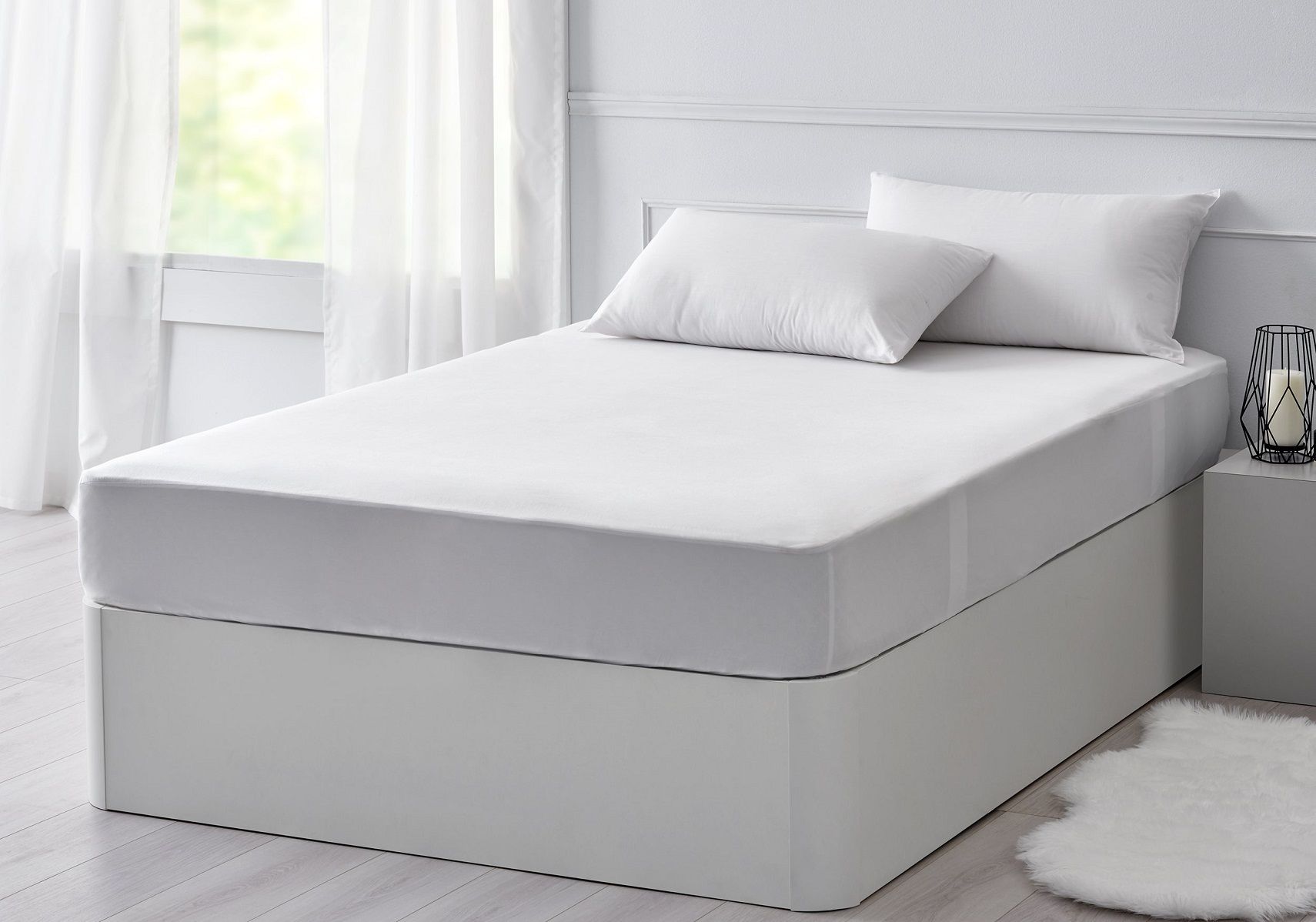


:max_bytes(150000):strip_icc()/Helix-Assets-Photography-Product-Mattress-Standard-Midnight-Lifestyle-20190312-5c8a98b1c9e77c0001eb1ba5.jpg)


